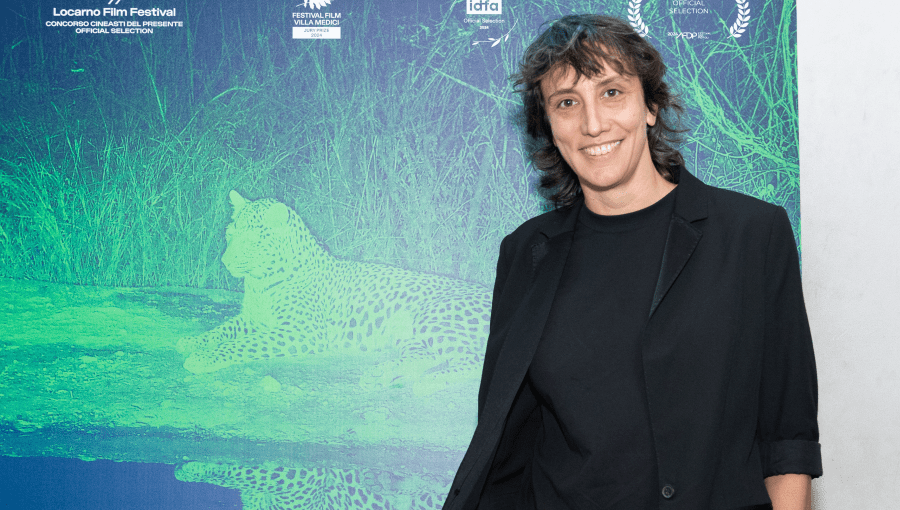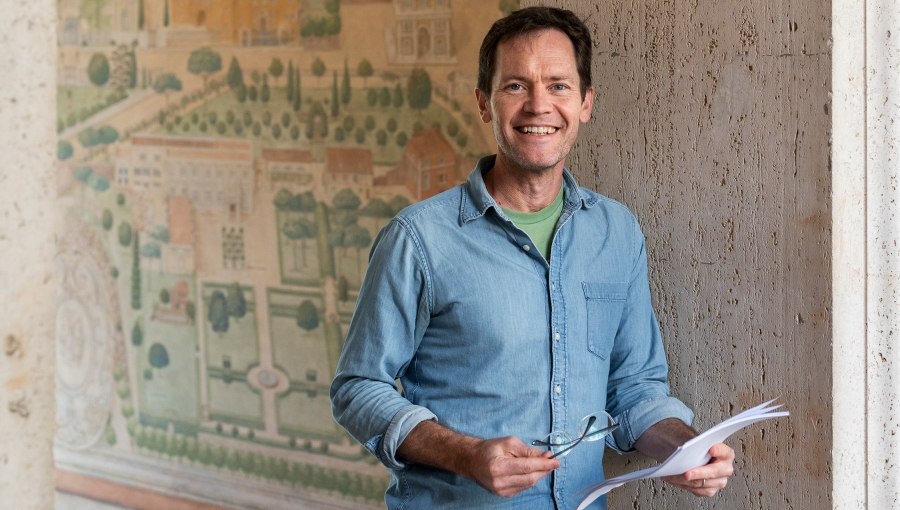Freedom to Think Otherwise: Philosophy Professor Brunella Antomarini
Brunella Antomarini is Adjunct Assistant Professor of Philosophy at John Cabot University. She has a pluri-disciplinary formation in contemporary epistemology, aesthetics and philosophy, semiotics, theory of poetry, and anthropology. She is the author of seven books, the editor and co-editor of thirteen books, and over 50 articles in national and international philosophy journals. She is also a translator from English and the author of the children’s book Denizens of the Forest (Poligrapha Ediciones, Barcelona 1992).

Professor Brunella Antomarini
Where do you see philosophy as a discipline heading in the future?
I see its relevance in the context of the deep changes the cultural and technological globalization is undergoing. Issues like human identity, a definition of nature, scientific objectivity, technological advances leading to either an increase in inequality and pollution or an improvement of democracy and welfare, can be dealt with by philosophy only, exactly because it is the discipline of intellectual freedom. The sciences, and the economic and political systems lack that freedom and the easiness of free conversation, due to their being moved by the need for success and convenience.
You are a woman and a philosopher. With the exception of Beauvoir, Arendt, Weil, and a few others, philosophy is still largely a male club. While historical reasons may account for the past, this continues to be the trend well into the 21st century. Is there something in philosophy that is less appealing to women today?
No, I do not think it depends on women’s choices. The same happens in fields like physics, economy, engineering, architecture, biology, among others. I would rather say that women are relevant in fields abandoned by men. Literary, philosophical, or classical studies do not sound masculine enough to ambitious men. And men have a heavy societal pressure to be ambitious. Women fill the spaces left available to them. Most of my students are women, but the higher the level of research, the fewer women are selected. It is a vicious cycle: men on top choose other men when it comes to alliances, schools, or competition. Competition is like a war and, as Hannah Arendt said, “men do not like to take orders from women.” This causes insecurity in women, and it gives men good reasons not to choose them, which creates a closed loop.
Philosophy continues in part to be the object of stigma even within academia today (too theoretical, bookish and obsolete, no practical application, useless in the job market, etc.) The more new disciplines emerge, the more philosophy seems to be relegated to the corners of the curriculum, with philosophy departments targeted for cuts or even elimination in many U.S. universities. What do you make of this phenomenon?
There is some truth in this. The greatest responsibility for this neglect rests on philosophers, who speak a technical language, are self-referential, and lose contact with the very aim of philosophy. As Aristotle claimed, human beings are philosophers by nature – but it should be added: on the condition that their language can be intelligible to anyone. I do not mean that we should renounce philosophical traditions and technical notions (this would reinforce the populistic idea that anyone can understand anything), but that contact with the real world should not be neglected. Philosophy can be useful in the job market, too, why not? If philosophy could manage to orient it in a direction that is not mere convenience and private interest, that would be quite an accomplishment.
You are known for your interactive way of teaching. What are the benefits and limitations of discussing concepts and ideas as one is learning them? How does this affect students with no previous exposure to philosophy?
The benefits are that students learn more quickly how philosophy can be dealt with and have greater chances to understand sophisticated texts. The limitations consist of the risk of making the arguments banal when the students are beginners. I think that risk is worth taking.
How do you keep motivated/what keeps you inspired in your profession?
After 40 years of speaking and writing that language, I do not even ask myself why I keep using it. It is simply my pleasure. Or it is the only thing I am able to do. Moreover, young people have an intuitive intelligence that often surprises me and can be even useful to my research and writing.
What philosopher/work would you recommend to someone who has no previous knowledge of philosophy and who would like to approach the subject for the first time?
Plato’s dialogues. They are great literary pieces and the first examples of theory fiction. Readers from any field can enjoy the mixture of arbitrary invention and strict logical argumentation. Plato gives the reader the greatest freedom to think otherwise. Philosophy is midway between art and science.
Is philosophy a thing of the past? Some say that there are no more “big philosophers.” Do you agree this is the case, and if yes, why is this happening?
Today there are no big philosophers, no big artists, no big physicists…It is a wider problem, due to the fact that we live in a globalized society, in which the source of surprise and excellence gets lost within “horizontal” and plural communities. As Andy Warhol said, in the future, everyone will be a celebrity for 15 minutes. Maybe this will jeopardize the chance of having a Newton, or an Einstein, or a Leonardo. Or we may have myriads of them, being recognized by myriads of communities (even giving a chance to women’s talents to be recognized)? Or we might have groups of talented people replacing one genius. After all, is success so important?





